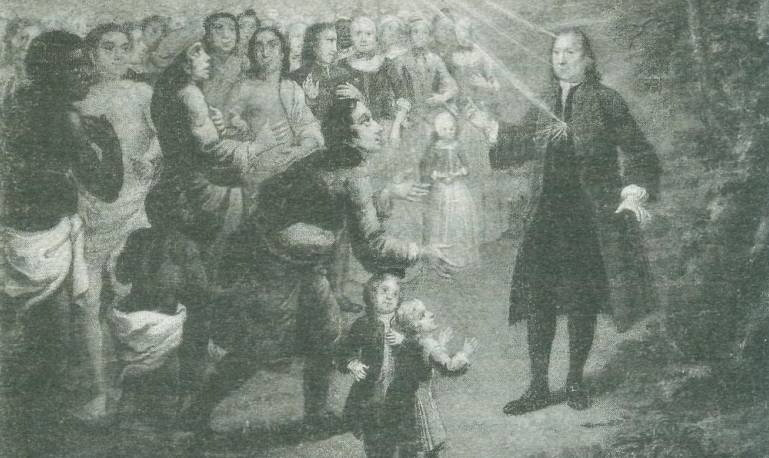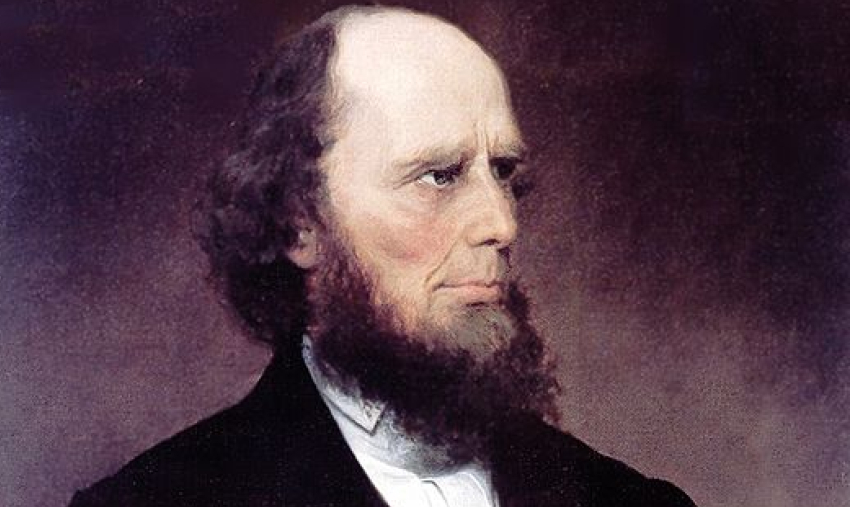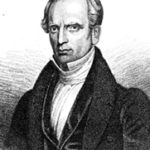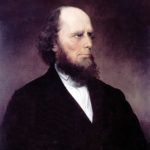Portraits of Revival-Count Von Zinzendorf
 Count Ludwig von Zinzendorf (1700-1760) was the true father of modern missions and when William Carey was called “the father of modern missions,” he referred to Zinzendorf and the Moravians as his inspiration and the true heirs of this title. In his book The Lost Art of Intercession James W. Goll writes:
Count Ludwig von Zinzendorf (1700-1760) was the true father of modern missions and when William Carey was called “the father of modern missions,” he referred to Zinzendorf and the Moravians as his inspiration and the true heirs of this title. In his book The Lost Art of Intercession James W. Goll writes:
The Moravians discovered a key of power in Leviticus 6:13, where the Lord says, “Fire shall be kept burning continually on the altar; it is not to go out.” They believed New Covenant fire on the altar was prayer, and they acted on God’s challenge. They managed to change the world with that little key. The Moravian community of Herrnhurt in Saxony, in 1727, started a 24 hour prayer watch that continued non-stop for a over a hundred years. By 1972, 65 years after the commencement of that prayer vigil, the small Moravian community had sent forth 300 missionaries to the ends of the earth…..
Is fervent intercession a basic component in world evangelization? The answer to this question is surely an unqualified “yes.” During its first years of existence, the Herrnhut settlement showed few signs of spiritual power. By the beginning of 1727, the community of about three hundred people was wracked by dissension and bickering, an unlikely site for revival. Zinzendorf and others, however, covenanted to pray and labor for revival. On May 12, revival came. Christians were aglow with new life and power, and dissension vanished and unbelievers were converted.
The key to the power and effectiveness of the Moravian community was their single-hearted devotion to Jesus Christ and to the Watch of the Lord. No one in modern Church history has wielded this “ancient tool” so effectively or faithfully as Christian David, Count von Zinzendorf, and the Moravian believers.
The Moravians were just quiet people like you and me. But they waited one morning and suddenly, as they waited and prepared their hearts, something came which they called a “sense of the loving nearness of the Savior instantaneously bestowed.” Writes A.W. Tozer in his classic book The Mystery of the Holy Spirit:
When the Holy Spirit is allowed, and when He does have particular intimacy with the human soul, He never talks about Himself; He talks about the Lord Jesus Christ for He came to reveal Jesus. The Holy Spirit fell on that Moravian crowd in 1727. They did not say a sense of the loving nearness of the Spirit, but a sense of the loving nearness of the Savior instantaneously bestowed. Zinzendorf said,
That group of seventy-five German Christians arose and went out from that building so happy, that they did not know whether they were on earth or had already gone to heaven.
The historian says that the result of that was that in twenty short years, those Spirit-filled years Moravians did more for world missions than all the church put together had done in 200 years. They made missionaries out of them.
In Hurenhut, they went up, had a prayer chamber and divided it into four-hour segments, so that they kept prayer going twenty-four hours a day for one hundred years. “What happened?” I will tell you what happened. John Wesley was crossing the ocean from the United States to England, when they came into a storm and even the sailors got scared. There was one little group that did not get scared.
They huddled together and sang hymns with shining faces. They were the Moravians. And John Wesley said to them, “Why aren’t you praying? Why are you so happy? They said, “If the Lord wills to have us all drowned, sudden death will be sudden glory.
This dignified Anglican did not know what to make of that, but it went very deep. He went over and found his brother Charles had already been converted. He went to Peter Bowler, the Monrovian and said, Brother Peter, I don’t have what my brother Charles has. What will I do?” “Well,” he said “it is by grace, brother, it’s all by grace.” “Well,” Wesley said, “I don’t have the grace. What should I do, quit preaching?” “No,” he said, “preach grace because it’s in the Bible till you get it, and then after you get it, preach it because you have it.”
You know the story of Aldersgate Street, when John Wesley felt his heart strangely warmed. It is too much known about to mention. Do you know, that wasn’t the end of it? Not only did Methodist encircle the globe, the Salvation Army was born out of that. The same Pentecostal outpouring in 1727 spilled over, and the Salvation Army was born out of that as well as the Christian and Missionary Alliance.
The prayer vigil by Zinzendorf and the Moravian community sensitized them to attempt the reaching out of others, and six months after the beginnings of the prayer watch, Count suggested to his fellow Moravians the challenge of a bold evangelism aimed at the West Indies, Greenland, Turkey, and Lapland. Some were skeptical, but Zinzendorf persisted.
Twenty-six Moravians steeped forward for world missions wherever the Lord led. James writes that the exploits that followed are surely to be numbered among the high moments of Christian history. Nothing daunted Zinzendorf or his fellow followers of Jesus Christ—prison, shipwreck, persecution, ridicule, plague, abject poverty, and the threats of death. His hymn reflected his conviction:
Ambassador of Christ, know ye the way to go? It leads unto the jaws of death, is strewn with thorns and woe.
A story is told that “When the ship carrying the first two Monrovian missionaries sent to the West Indies was pulling away from the dock, the former fiance of one them cried to her departing love that she would probably never see again, “Why? Why would you do something like this? He replied simply, “So that the Savior will receive the reward of His sacrifice.” True evangelism and true revival is born out of a love for the Lord, not just a love for the lost, though that is also important.
True intercession is likewise founded upon a desire to be united with the Lord, not just an effort to get Him to do something. The Lord wants us to come to the place where we no longer want Him to fulfill the selfish desires of our hearts, instead we need to know the desires of His heart, and to become intercessors that He can use in His priestly ministry.
Source of Image:Courtesy of the Moravian Archives, Winston-Salem, N.C.
 Finney continued to preach the Gospel with increasing power and results. Most of his meetings were in the northwestern part of the United States, but he also traveled as far away as England with the same revival results there.
Finney continued to preach the Gospel with increasing power and results. Most of his meetings were in the northwestern part of the United States, but he also traveled as far away as England with the same revival results there.



 Western civilization has become pluralistic, secularized, and biblically illiterate. Today many people in the West have little sense of how their lives have benefited from Christianity’s influence, the revivals and the Great Awakenings. The church is now often viewed with hostility or resentment. England is spiritually at its lowest state for over 250 years (probably worse than before the revivals of the Wesleys and others).
Western civilization has become pluralistic, secularized, and biblically illiterate. Today many people in the West have little sense of how their lives have benefited from Christianity’s influence, the revivals and the Great Awakenings. The church is now often viewed with hostility or resentment. England is spiritually at its lowest state for over 250 years (probably worse than before the revivals of the Wesleys and others).